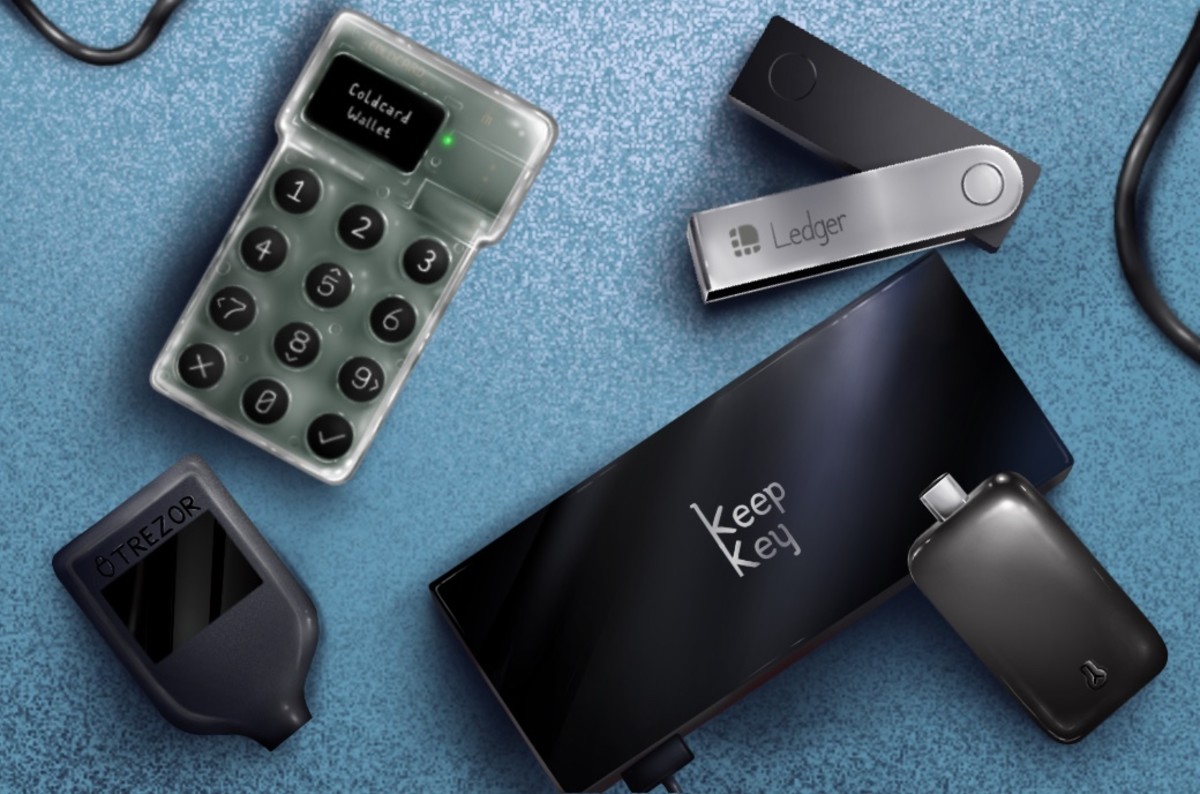Review of Popular Cryptocurrency Wallets

- Introduction to Cryptocurrency Wallets
- Types of Cryptocurrency Wallets
- Security Features of Popular Cryptocurrency Wallets
- User-Friendly Interface of Top Cryptocurrency Wallets
- Comparison of Fees Among Different Cryptocurrency Wallets
- Tips for Choosing the Best Cryptocurrency Wallet for Your Needs
Introduction to Cryptocurrency Wallets
Cryptocurrency wallets are digital tools that allow users to securely store, send, and receive various cryptocurrencies. These wallets come in different forms, including hardware wallets, software wallets, and online wallets. Each type of wallet has its own unique features and benefits, catering to different needs and preferences of cryptocurrency users.
Hardware wallets are physical devices that store the user’s private keys offline, providing an extra layer of security against hacking and malware attacks. Software wallets, on the other hand, are applications or programs that can be installed on a computer or mobile device. They are convenient for everyday use but may be more vulnerable to cyber threats compared to hardware wallets.
Online wallets, also known as web wallets, are cloud-based wallets that can be accessed from any device with an internet connection. While they offer convenience and accessibility, online wallets are considered less secure than hardware wallets due to the risk of hacking and phishing attacks. It is essential for cryptocurrency users to choose a wallet that aligns with their security preferences and usage habits.
When selecting a cryptocurrency wallet, users should consider factors such as security features, user interface, supported cryptocurrencies, and customer support. It is crucial to research and compare different wallets before making a decision to ensure the safety of your digital assets. By understanding the different types of cryptocurrency wallets available, users can make an informed choice that meets their needs and preferences.
Types of Cryptocurrency Wallets
There are several types of cryptocurrency wallets available to users, each with its own unique features and benefits. It is essential to understand the differences between these wallets to choose the one that best suits your needs.
- Hardware Wallets: Hardware wallets are physical devices that store the user’s private keys offline, providing an extra layer of security. They are considered one of the safest options for storing cryptocurrency.
- Software Wallets: Software wallets are applications or programs that can be downloaded onto a computer or mobile device. They are convenient to use but may be more susceptible to hacking.
- Web Wallets: Web wallets are online wallets that can be accessed through a web browser. While they are easy to use, they are also more vulnerable to cyber attacks.
- Paper Wallets: Paper wallets involve printing out the user’s private and public keys on a piece of paper. They are considered one of the most secure options as they are not connected to the internet.
- Mobile Wallets: Mobile wallets are apps that can be downloaded onto a smartphone or tablet. They are convenient for making transactions on the go but may not offer the same level of security as hardware wallets.
It is essential to research and compare the different types of cryptocurrency wallets to determine which one aligns with your security preferences and usage habits. By choosing the right wallet, you can ensure the safety of your digital assets and have peace of mind while navigating the world of cryptocurrency.
Security Features of Popular Cryptocurrency Wallets
When it comes to choosing a cryptocurrency wallet, security is a top priority for users. Here are some of the security features of popular cryptocurrency wallets:
- Encryption: Most cryptocurrency wallets use encryption to secure the private keys stored on the device. This helps prevent unauthorized access to the funds.
- Two-factor authentication: Many wallets offer two-factor authentication as an extra layer of security. This requires users to verify their identity using a second method, such as a text message or email, before accessing their funds.
- Multi-signature support: Some wallets support multi-signature transactions, which require multiple private keys to authorize a transaction. This can help prevent unauthorized transactions.
- Backup and recovery: It is important to choose a wallet that offers a secure backup and recovery process. This ensures that users can access their funds even if they lose their device or forget their password.
- Secure hardware: Hardware wallets, such as Ledger or Trezor, offer an extra layer of security by storing private keys offline. This makes them less vulnerable to hacking attacks.
By choosing a cryptocurrency wallet with strong security features, users can help protect their funds from theft and unauthorized access. It is important to research and compare different wallets to find the one that best meets your security needs.
User-Friendly Interface of Top Cryptocurrency Wallets
When it comes to choosing a cryptocurrency wallet, one of the key factors to consider is the user-friendly interface. A wallet that is easy to navigate and understand can make managing your digital assets much simpler and more efficient. Here are some of the top cryptocurrency wallets known for their intuitive interfaces:
- Exodus Wallet: Exodus is a popular choice among cryptocurrency users for its sleek and user-friendly interface. The wallet allows you to easily send, receive, and exchange a variety of cryptocurrencies with just a few clicks.
- Trezor Wallet: Trezor is a hardware wallet that offers a simple and straightforward interface for managing your digital assets. The wallet’s design is clean and easy to navigate, making it a great option for beginners.
- Electrum Wallet: Electrum is a lightweight wallet that is known for its speed and simplicity. The wallet’s interface is minimalistic yet functional, allowing users to easily access their funds and transactions.
- MetaMask Wallet: MetaMask is a browser extension wallet that is popular among users of decentralized applications. The wallet’s interface is intuitive and easy to use, making it a great choice for those who are new to the world of cryptocurrency.
Overall, choosing a cryptocurrency wallet with a user-friendly interface can help simplify the process of managing your digital assets. Whether you are a beginner or an experienced user, having a wallet that is easy to navigate can make a big difference in your overall experience with cryptocurrencies.
Comparison of Fees Among Different Cryptocurrency Wallets
When comparing fees among different cryptocurrency wallets, it is important to consider the various costs associated with using each wallet. Some wallets may charge a flat fee for transactions, while others may have a percentage-based fee. Additionally, some wallets may charge fees for transferring funds in and out of the wallet, while others may offer these services for free.
One popular wallet, Wallet A, charges a flat fee of $1 per transaction. This fee is the same regardless of the amount being transferred. On the other hand, Wallet B charges a percentage-based fee of 0.5% per transaction. This means that the fee will vary depending on the amount being transferred.
In addition to transaction fees, it is also important to consider any fees associated with exchanging one cryptocurrency for another within the wallet. Some wallets may charge a fee for these exchanges, while others may offer them for free. Wallet C, for example, charges a 1% fee for exchanging cryptocurrencies within the wallet.
Overall, when comparing fees among different cryptocurrency wallets, it is important to consider not only the transaction fees but also any fees associated with transferring funds in and out of the wallet, as well as exchanging one cryptocurrency for another. By carefully considering these fees, users can choose the wallet that best meets their needs while minimizing costs.
Tips for Choosing the Best Cryptocurrency Wallet for Your Needs
When choosing a cryptocurrency wallet, it is essential to consider your specific needs and preferences. There are several factors to keep in mind to ensure you select the best wallet for your requirements.
Firstly, consider the type of cryptocurrencies you plan to store. Some wallets support a wide range of cryptocurrencies, while others are designed for specific ones. Make sure the wallet you choose is compatible with the currencies you intend to use.
Secondly, think about the level of security you require. Some wallets offer advanced security features such as two-factor authentication and multi-signature functionality, while others may have more basic security measures. Assess your security needs and choose a wallet that aligns with them.
Additionally, consider the ease of use of the wallet. Some wallets have user-friendly interfaces and are suitable for beginners, while others may be more complex and better suited for experienced users. Select a wallet that you feel comfortable using to ensure a smooth experience.
Furthermore, think about whether you prefer a hardware wallet, software wallet, or a mobile wallet. Each type has its advantages and disadvantages, so choose the one that best fits your lifestyle and usage habits.
In conclusion, take the time to research and compare different cryptocurrency wallets before making a decision. By considering factors such as supported currencies, security features, ease of use, and wallet type, you can select the best wallet for your needs. Remember to prioritize security and usability to ensure a positive experience with your chosen wallet.




